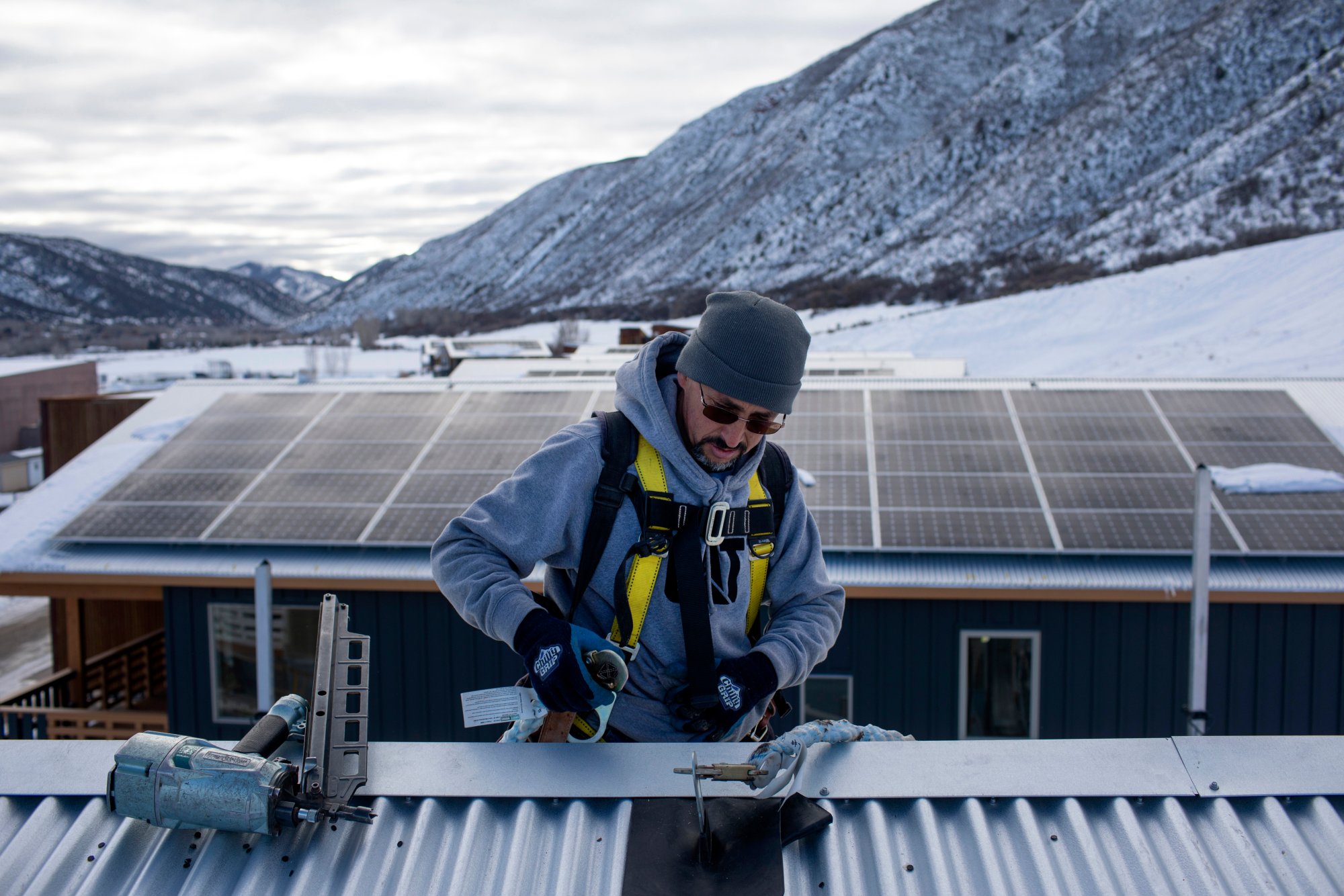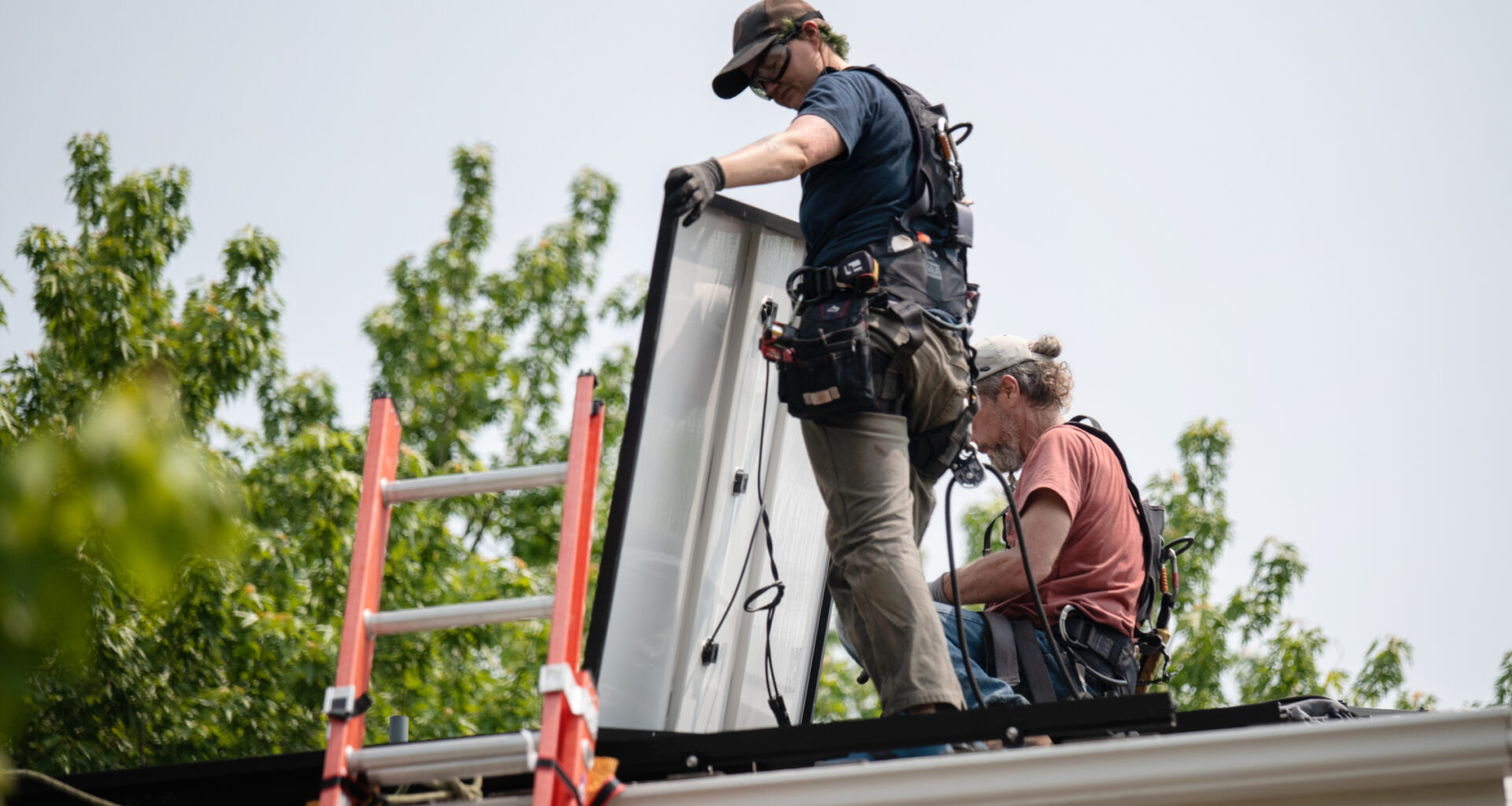The Environmental Protection Agency wants to cancel $7 billion in solar installation grants, including $156 million already awarded to Colorado, according to national news reports, and Colorado state officials and solar industry leaders are scrambling to learn what is happening to a highly touted program.
The Colorado Solar and Storage Association said the cancellation, if confirmed, would mean yet another federal blow to clean energy efforts, where Colorado has led the way nationally in converting power generation to renewable sources and promoting solar use in lower-income neighborhoods.
“It’s devastating to see the latest Trump administration action intended to cripple the renewable energy industry,” said KC Becker, the solar trade group’s president and former regional EPA administrator under the Biden administration. “EPA’s Solar for All grant had a huge interest from states and nonprofits. Colorado was lucky to get $156 million, which would help lower energy bills for homeowners and renters and meet the ever-growing demand for electricity here. Cutting this funding will mean energy needs go unmet, energy bills will go up, and the residential and community solar industry will be further impacted.”
The New York Times reported Tuesday that EPA headquarters is preparing letters informing grantees, which include state governments and nonprofit organizations, that $7 billion awarded for Solar for All under the 2022 Inflation Reduction Act would be rescinded. Colorado’s $156 million grant, similar to the amount sent to many states, went to the Colorado Energy Office. The energy office was preparing a program that could combine direct loans and grants with disbursements to nonprofits and community banks to amplify the subsidies.
The Colorado Energy Office said Tuesday it has been drafting three grant solicitations, including for a single-family rooftop program at about $18 million, loans to third-party owners for single and multifamily rooftop panels at about $55 million, and workforce development grants at about $11.5 million. The requests for proposals were meant to be released “in the next few months.”
“While CEO is aware of reports that EPA may move to terminate Solar For All, there has been no formal notification to the Energy Office of any changes to the program at this time, and we will continue to defend this program against further federal attempts to illegally withhold these funds,” a state spokesperson said. “Solar for All is one of the major federal investments fully contracted and legally obligated to Colorado.”
Losing the grants would “deprive approximately 20,000 Colorado households the freedom and opportunity to access solar through direct installations on their homes or community solar subscriptions,” the energy office said.
It’s unclear whether the Trump administration has the power to take back money appropriated by Congress and already disbursed by federal agencies under appointees of previous administrations. Community grantees who received a different appropriation of $20 billion under the Biden-era Greenhouse Gas Reduction Fund are legally challenging a similar EPA clawback of those funds.
 Juan Mendoza clips in his harness while constructing solar panels on a rooftop in the Basalt Vista Affordable Housing Community neighborhood on Thursday, Feb. 10, 2022, in Basalt. (Hugh Carey, The Colorado Sun)
Juan Mendoza clips in his harness while constructing solar panels on a rooftop in the Basalt Vista Affordable Housing Community neighborhood on Thursday, Feb. 10, 2022, in Basalt. (Hugh Carey, The Colorado Sun)
The energy office noted Tuesday that Colorado and other states have already successfully fought the Trump administration in court over similar funding freezes and recissions across a number of federal agencies. Another suit Colorado joined forced the Trump administration to release Biden-era grants to build out more fast-charging stations for EVs.
“Solar is a popular, cheap and clean way to add to our energy supply. Cutting this funding only undercuts the energy dominance that Trump says he wants but is actually taking any action he can to undermine the industry and add costs to consumers,” Becker said.
The attempted rescission comes amid a series of Trump administration moves tilting energy development back toward fossil fuels such as coal, oil and natural gas:
The One Big Beautiful Bill Act signed in July eliminated the $7,500 federal subsidy for buying new EVs, and phased out tax credits that lowered the price of developing solar and wind power generation by 30% to 50%. The same bill also ended individual tax credits for placing solar panels atop single-family homes, which had boosted a Colorado solar installation market employing thousands of people.
The Interior Department ended prospects for any new leasing of ocean-based offshore wind farms, and also said any new solar or wind farms proposed for federal land must be approved personally by the Interior secretary. Then the department issued another directive that any new federal clean energy developments must produce the same amount of power per acre of land used as traditional fossil fuel projects, which under current technology is an impossible bar.
The White House cut through red tape allowing easier expansion of coal mining leases on federal land, which could impact the future growth of mines like West Elk near Somerset, which is roughly 60 miles south of Glenwood Springs.
The One Big Beautiful Bill also lowered federal royalties paid on extraction of fossil fuels from public land.
It’s unclear what will happen with another $156 million grant meant to promote solar for income-qualified families on tribal lands. Colorado-based nonprofit Oweesta Corp. won a $156 million grant to focus on building rooftop and community solar on tribal lands across the nation. The Longmont-based nonprofit was to distribute the solar building money in conjunction with community development financial institutions already working with tribal governments on economic projects, the EPA said in 2024.
Type of Story: News
Based on facts, either observed and verified directly by the reporter, or reported and verified from knowledgeable sources.

